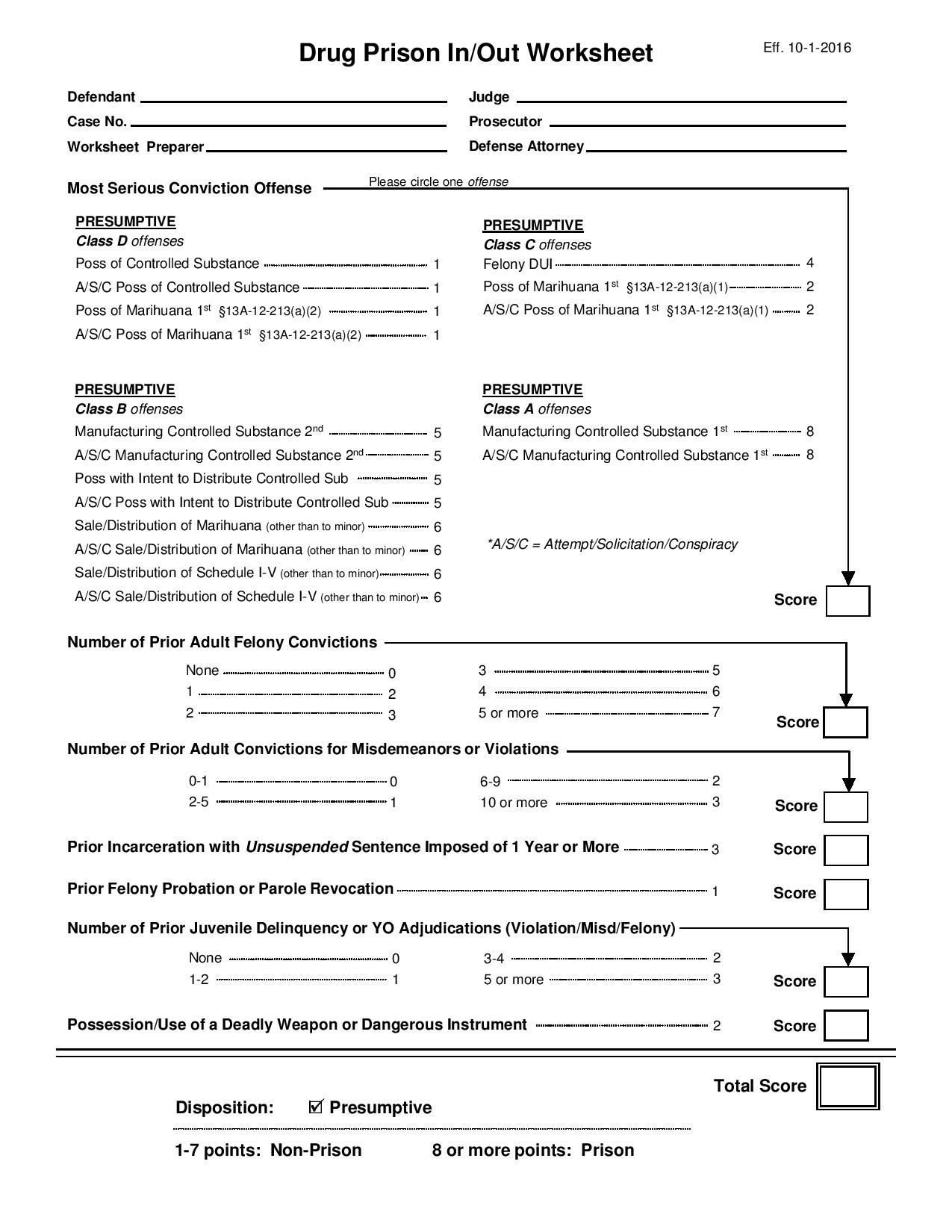The sentencing guidelines calculate the sentence for some crimes based on your previous criminal record. It can mean the difference between going to prison or not and how long you spend in prison. Your guidelines score determines whether you'll be sent to prison or go on probation, and how long you'll spend in prison or how long the split or suspended sentence is.
How are the Alabama sentencing guidelines configured?
The guidelines use a combination of the following:
- Seriousness of the offense
- The number of prior felony convictions
- Number of prior adult convictions for misdemeanors
- Whether you have served more than 1 year in jail
- Prior felony probation or parole revocation
- Prior juvenile delinquency or YO adjudications
- Possession/use of a deadly weapon or dangerous instrument
Does the Judge have to Follow the Guidelines?
There are two different kinds of guidelines offenses: presumptive and voluntary. Presumptive guidelines are mandatory, and voluntary guidelines are not.
All violent crimes are voluntary guideline offenses, as are most kinds of burglary. All of other crimes listed below are presumptive guidelines offenses.
But even if you score non-prison under the guidelines, the judge can send you to prison if there's an aggravating factor. The most common aggravating factor is being on probation/bond when the offense occurred, but there are others. These allow the judge to go above the guidelines.
There are some restrictions on when aggravating factors can be presented, and you have the right to a jury trial on them.
Likewise, even if you score prison, this doesn't mean you will go to prison. The judge can consider mitigating factors, such as making full restitution or attending drug treatment. These allow the judge to go under the guidelines. Furthermore, front end diversion is considered a prison sentence, so you can remain out of jail even if you score prison.
Also, if there is a prison sentence, you can also do your prison sentence through community corrections since you are technically a state inmate in community corrections.
Only felonies are guideline offenses.
The following drug crimes are Alabama presumptive guidelines offenses:
Possession of a Controlled Substance (including attempt, conspiracy, and solicitation)
Possession of Marijuana in the First Degree (including attempt, conspiracy, and solicitation)
Manufacturing Controlled Substance (including attempt, conspiracy, and solicitation)
Distribution of a Controlled Substance and Marijuana (including attempt, conspiracy, and solicitation)
Possession with Intent to Distribute (including attempt, conspiracy, and solicitation)
Felony DUI
Distribution of Marihuana
Distribution of controlled substance
Gadsden lawyer Dani V. Bone is an aggressive criminal defense lawyer that opened his law practice in 1997. Sam D. Bone was named a top 40 lawyer under 40 by the National Trial Lawyer's Association in 2015. If you need quality representation, call 256-547-1005.
The following property offenses are Alabama presumptive guidelines offenses:
Forgery (all degrees)
Possession of Forged Instrument (all degrees)
Theft (all kinds and all degrees)
Receiving Stolen Property (all degrees)
Possession/Use of a Credit/Debit Card
Unauthorized Use/Breaking and Entering Vehicle
Burglary 3rd if an unoccupied business (all other kinds are voluntary)
Unauthorized breaking and entering a vehicle
Theft of services
Gadsden lawyer Dani V. Bone is an aggressive criminal defense lawyer that opened his law practice in 1997. Sam D. Bone was named a top 40 lawyer under 40 by the National Trial Lawyer's Association in 2015. If you need quality representation, call 256-547-1005.
The following offenses are voluntary guidelines offenses:
- Assault 2nd
- Robbery 3rd
- Assault 1st
- Rape 2nd
- Sodomy 2nd
- Robbery 2nd
- Rape 1st
- Sodomy 1st
- Manslaughter
- Robbery 1st
- Murder
Gadsden lawyer Dani V. Bone is an aggressive criminal defense lawyer that opened his law practice in 1997. Sam D. Bone was named a top 40 lawyer under 40 by the National Trial Lawyer's Association in 2015. If you need quality representation, call 256-547-1005.



